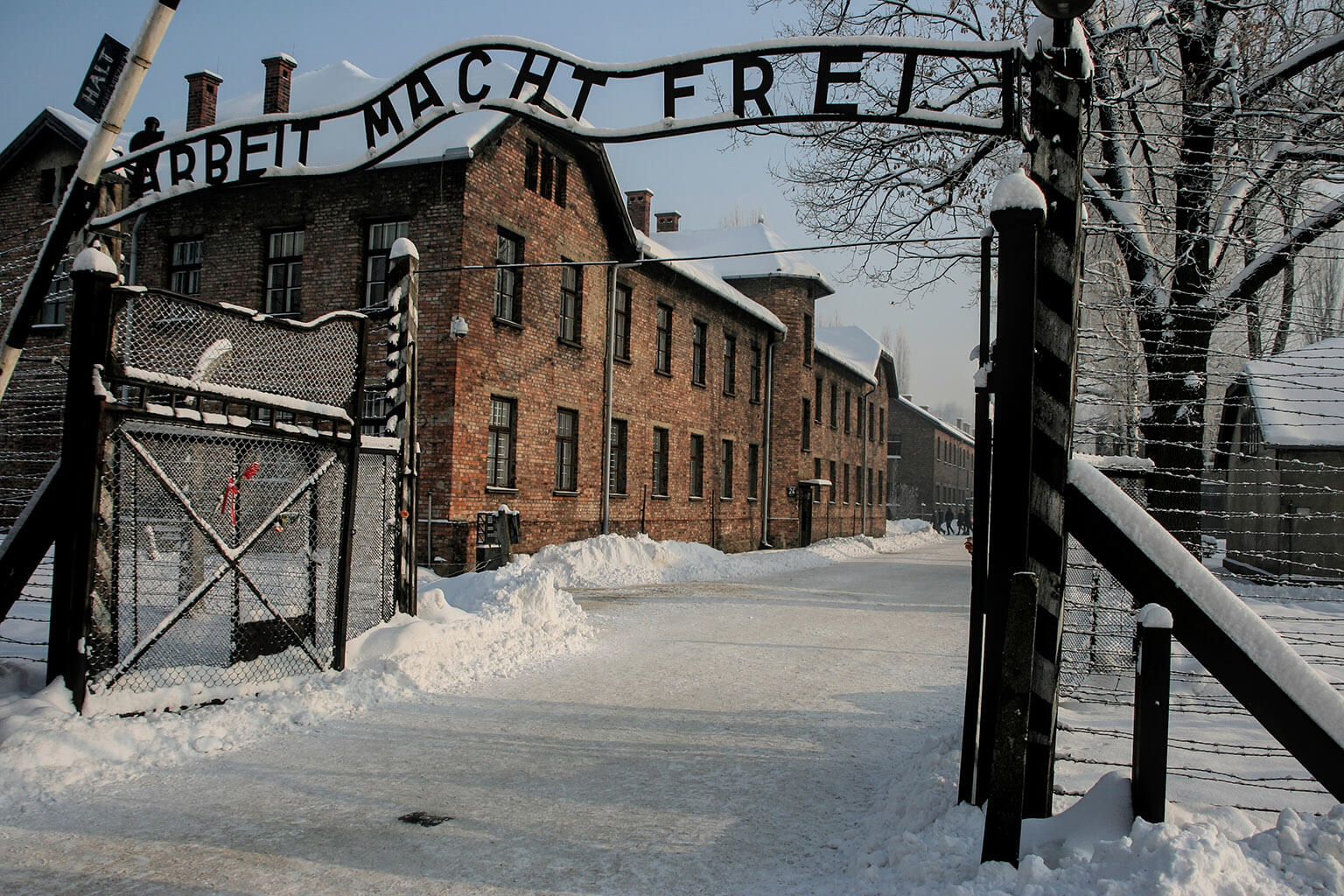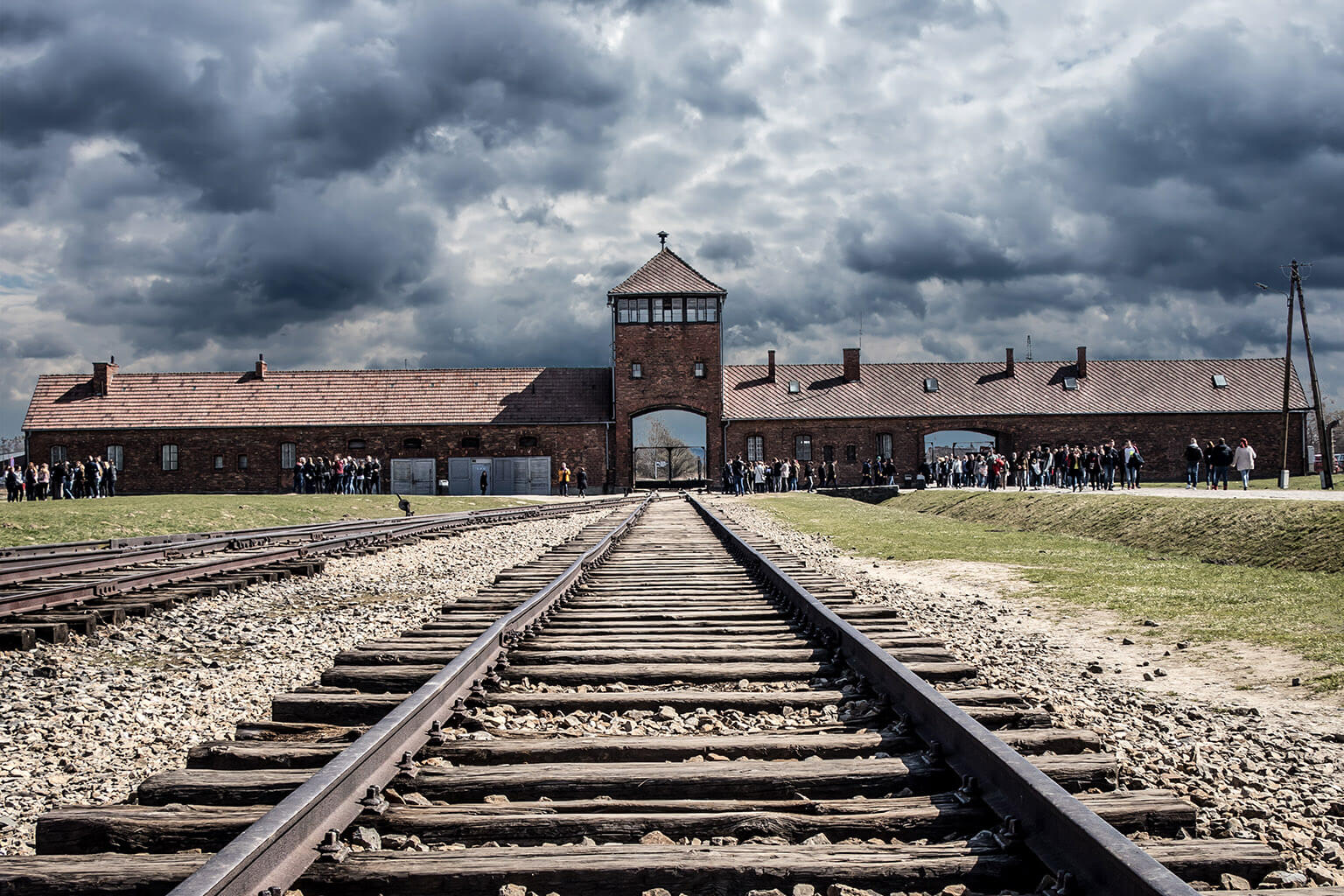Scholars unite for war, the Holocaust, human rights discussion
 Faculty at the U.S. Air Force Academy and University of Texas at Dallas are collaborating on the inaugural War, the Holocaust, and Human Rights Conference, at which speakers will discuss lessons learned from the atrocities of World War II, such as those that took place at the former Nazi concentration camp, Auschwitz, Oświęcim, Poland, pictured here. (Photo courtesy of Shutterstock)
Faculty at the U.S. Air Force Academy and University of Texas at Dallas are collaborating on the inaugural War, the Holocaust, and Human Rights Conference, at which speakers will discuss lessons learned from the atrocities of World War II, such as those that took place at the former Nazi concentration camp, Auschwitz, Oświęcim, Poland, pictured here. (Photo courtesy of Shutterstock)
By Randy Roughton
U.S. Air Force Academy Strategic Communications
U.S. AIR FORCE ACADEMY, COLO.- While differing viewpoints often drive people further apart, members of the U.S. Air Force Academy hope a partnership with the University of Texas at Dallas will unite scholars of multiple disciplines for productive and respectful dialogue on critical issues, such as genocide, human rights issues and war crimes.
The inaugural War, the Holocaust, and Human Rights Conference is scheduled for Oct. 11-13 at the Academy and will bring in a wide range of speakers to discuss lessons learned from the Holocaust and how we can prevent such atrocities from occurring ever again.
“With the current troubling divisiveness in our country, the conference will serve as an intellectually challenging and inclusive space to have conversations and cross-discipline dialogue,” said Dr. Hugh J. Martin, an Academy Department of English and Fine Arts assistant professor and a member of the conference planning committee. “We hope by continuing these discussions while reckoning with the past century’s wars, genocides, and human rights abuses, we will gradually become a more educated and humane body politic.”
Guest speakers
Some already confirmed speakers include Rana Mitter, noted historian and professor at Oxford University; Rabbi Abraham Cooper, director of Global Social Action, a leading Jewish human rights organization; and Dr. Patricia Herberer Rice, a U.S. Holocaust Memorial Museum senior historian.
“The conference will give scholars and practitioners from around the country and beyond the opportunity to engage in rigorous, intellectual discussion and debate about topics that many might wish were swept under the rug of history,” Martin said. “The conference will also allow presenters and attendees to show their research, expand our understanding of these subjects and explore how these conflicts and crimes have shaped the previous century up to our current historical moment.”
The conference’s panels and presentations will be multi-modal, involving lectures, photography, roundtable discussions, videos, and more. This variety will allow artists and scholars to present various issues in ways that may have a different impact than a more traditional lecture. The conference will also include as many cadets as possible, said the Academy’s associate history professor Dr. Meredith Scott, who is organizing the conference with Dr. Debbie Pfister, a research assistant professor in the UT-Dallas Ackerman Center for Holocaust Studies.
 Nazi concentration camp, Auschwitz Birkenau, gate rail entrance in Oświęcim, Poland. The upcoming conference will examine the intersectionality of War, the Holocaust, and Human Rights this fall at the U.S. Air Force Academy. (Photo courtesy of Shutterstock)
Nazi concentration camp, Auschwitz Birkenau, gate rail entrance in Oświęcim, Poland. The upcoming conference will examine the intersectionality of War, the Holocaust, and Human Rights this fall at the U.S. Air Force Academy. (Photo courtesy of Shutterstock)
Cadet involvement
Cadets will attend panels, participate in discussion sessions, act as liaisons for keynote speakers and attend the keynote talks, including those by Harvard Kennedy School historian Rana Mitter, Scott said. Additionally, Cadet final projects in History 362, a course on genocide and representation, will be displayed as part of an undergraduate competition.
Safe environment
Pfister, who co-organized the conference with Scott, first thought of the partnership when she attended a conference here four years ago with associate and Marine veteran Marshall Coleman. The experience led to a conversation with retired Col. Kathleen Harrington, then head of the Academy’s English and fine arts department.
“Conferences continue to be a place to safely discuss issues,” Pfister said. “There is always a need for what we do because there is always a need to teach tolerance, and we need to be aware of what happens when it is not. People need to be aware of where hatred leads.
“We will not necessarily come up with the answers, but we will discuss the problems and the issues confronting us daily.”
Continuing conversation
Both institutions hope to make the War, the Holocaust, and Human Rights Conference a recurring event to continue cross-discipline conversations.
The conference is especially personal for Martin.
“As a professor at the U.S. Air Force Academy and more personally as an Iraq War veteran who writes frequently on the post-9/11 wars, I believe it is my duty to work to foster these conversations and build community through intellectual discussions and debate,” Martin said. “It is important, too, to work with other departments to build camaraderie, share knowledge and speak to much of the overlap in our disciplines.”